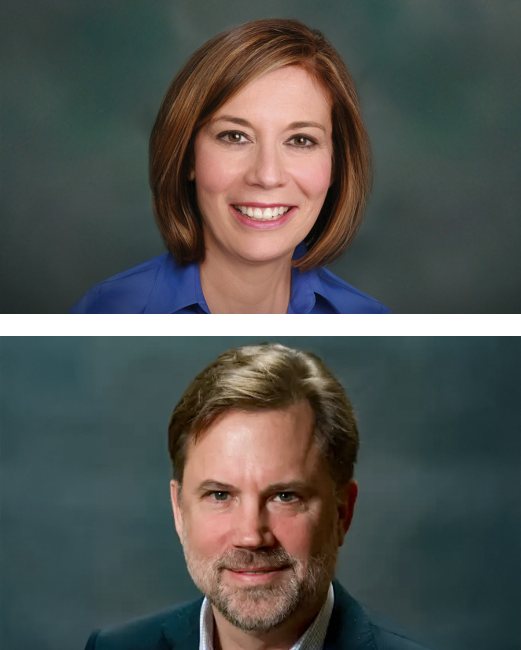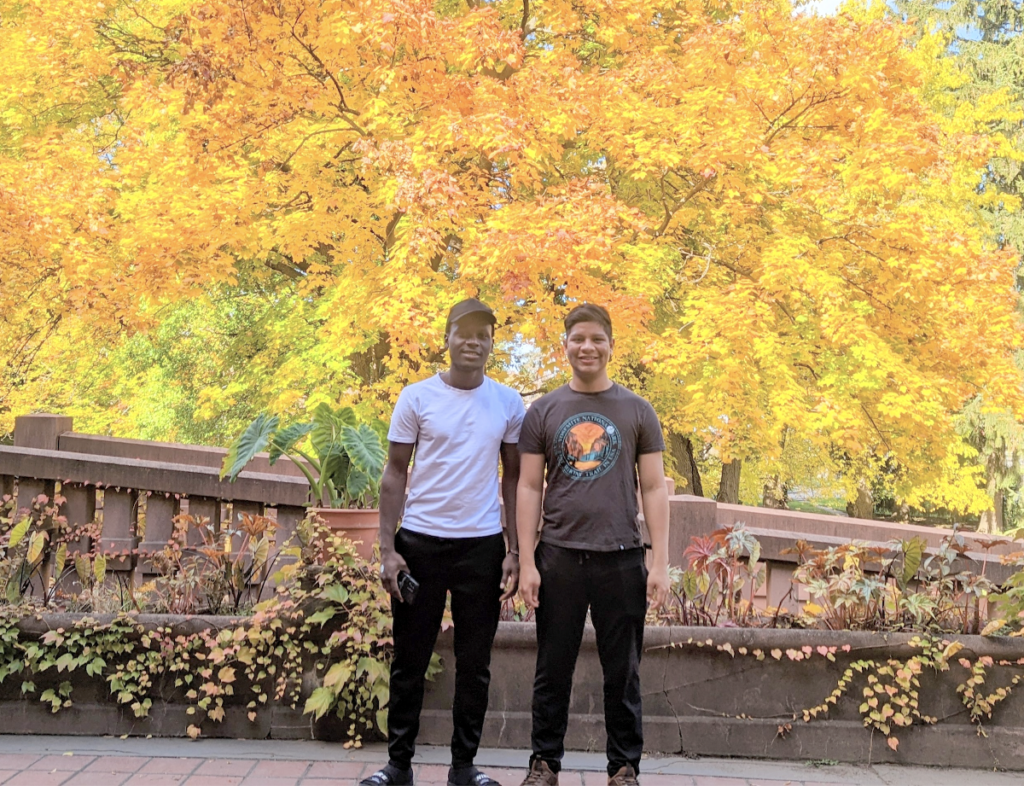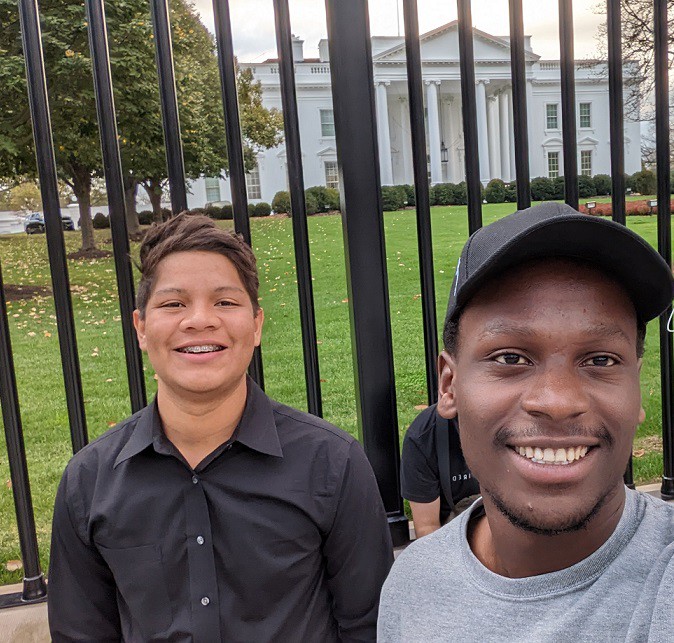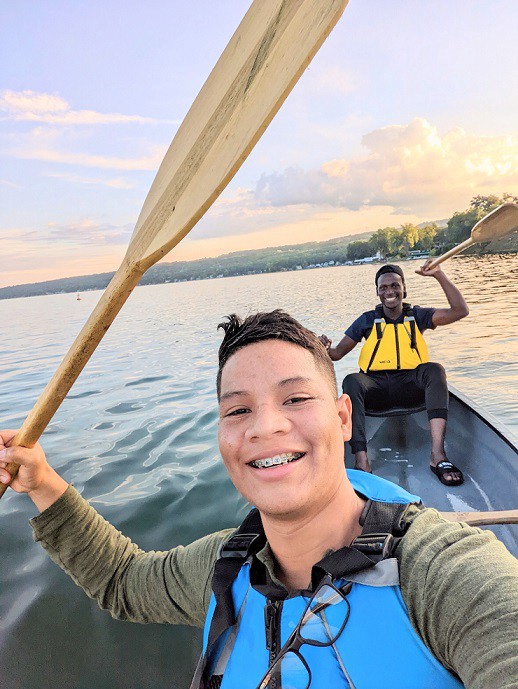-
What We Do
- WHERE WE WORK
-
About Us
 Welcome Message from Carol Jenkins, CEO
Welcome Message from Carol Jenkins, CEOWorld Learning believes that the best hope for peace, justice, and sustainability lies in bringing people together. Through cultural immersion, experiential learning, and information sharing, our programs equip others to collaboratively address the most pressing issues of our time.
Throughout my years at World Learning, I have had the fortunate opportunity to meet with many of our participants, partners, and alumni—a global network of learners. Our programs help them understand other cultures, master new skills, and cultivate networks. Our teaching and training methodologies empower them to find locally relevant, sustainable, and implementable solutions. Our approaches emphasize flexibility and adaptability that help them tackle real-world problems. They, in turn, make extraordinary changes in their lives and communities.
Please join us—and those we work with and serve around the world—in our pursuit to create a brighter and better future for all.
Carol Jenkins | CEO, World Learning
Allen Cutler | Chair, Board of Trustees - Get Involved
Media Center > Story
From Kenya and Panama to the United States: How two Global UGRAD students formed a fast friendship
December 7, 2022
By Eric House

One is a law student from Kenya, the other is an aspiring educator from Panama. Yet when they both arrived at Keuka College in New York as part of the Global Undergraduate Exchange Program (Global UGRAD) in fall 2022, Samuel Njenga and Elian González Lara became fast friends.
Sponsored by the U.S. Department of State and administered by World Learning, Global UGRAD enables college students from around the world to experience higher education in the U.S., gain new skills, and explore new cultures and values. Many participants go on to receive Fulbright grants, obtain prestigious internships, and work in business and government careers in their home countries.
Global UGRAD also offers the opportunity to make new connections with peers from around the world. That’s exactly what happened when Njenga and González first met—in a Walmart in upstate New York.
They both arrived at Keuka College in late August in a cohort of seven fellow international students. But it wasn’t until their second day that Njenga and González remember meeting while they were on a trip to get supplies and bonded over their shared confusion with the entire big box store shopping experience.
“We started talking in Walmart,” Njenga said. “I saw that he was also experiencing the same problem as me, so we had to figure it out together.”

“Every American knows how Walmart is,” González said. “It’s a huge store, and we had no idea what to buy. We debated about the taxes because we didn’t know the sales tax. And after that, we realized that we had more in common than we thought.”
Njenga attends Jomo Kenyatta University of Agriculture and Technology in Kenya where he studies law with hopes of becoming a policymaker. After previously struggling with the sciences, González worked closely with a professor to become a chemistry student at the University of Panama, where he hopes to someday be a science teacher himself. Despite their different upbringings and life paths, they both applied to participate in Global UGRAD to expand their studies in a new cultural context.
“There are so many things that allow us to connect with each other, even if we’re from opposite continents. We established a great friendship.”
They particularly enjoyed a course on U.S. history and government taught by professor Dr. Christopher Leahy. “He makes you think a lot about diplomacy and how the U.S. government started,” González said, eager to compare this history with Panama’s. And as a law student, Njenga was inspired to compare the Kenyan and American legal systems.

Courses like these represented a learning opportunity the two didn’t take lightly. “The kind of lectures that I’ve taken here have been the milestone of my career,” González said. “And the staff made our lives so easy on campus. They are such kind people. Back in our countries, we don’t have that. That connection with professors, with the staff, it doesn’t exist at all.”
When they weren’t diving deep into their studies, Njenga and González furthered their connection outside of class, often exploring the outdoors. They particularly enjoyed kayaking at Keuka Lake and a trip to Niagara Falls.
They cemented their bond by discussing current world issues. Together, they enjoyed conquering tough topics ranging from corruption, inflation, and poverty to geopolitics—just to name a few.
“The main things that connected us are the problems in our countries,” Njenga said. “We would talk about the same things in the way we picture our countries.”
“There are so many things that allow us to connect with each other, even if we’re from opposite continents,” González said. “We established a great friendship.”
But not only did they form a friendship, they established a bond they hope will grow alongside their future career plans.
“At some point, Samuel could become a leader in his country, or we both can become leaders and establish connections,” González said.
“That’s how it works,” Njenga said. “If you look at many leaders in a country, you see that diplomacy can become a friendship. You never know what can happen in the future.”
They also established connections with other fellow Global UGRAD participants at a culminating event in Washington, DC, in late November. Students from around the world gathered to reflect on their Global UGRAD experiences, take skill-building workshops, and celebrate at a multicultural reception.
When we spoke to Njenga and González during this event, they were excited about these added connections. “We’ve gotten to know so many people, see how diverse the world is, and how to establish links with people that are so different from us,” González said.
When asked what they hope to bring back to their home countries upon returning, they agreed that the opportunities for learning and connection will stick with them the most.

“Our workshops taught us how we can advance after this opportunity as alumni, and what opportunities we can have back in our countries,” González said. “And there are still so many issues to explore, so you really have to be focused. That’s something I will take back home.”
“What I’ll miss about Global UGRAD is learning from different people, because I’m so used to Kenya,” Njenga said. “I’ll miss my friends here because I’ve established such good relationships with different people.”
Top of that list is González, of course. The two hope to visit each other’s countries, but until then, they have plans to communicate on a regular basis to exchange ideas, share their learning experiences, and build upon their new friendship, one that looks to last a lifetime.
The connections forged through Global UGRAD represent the enduring power of exchange—how two individuals from different sides of the world can connect and be forever changed. As they head back to Kenya and Panama, Njenga and González know this to be true on a very personal level—and now have big dreams about what can grow from one shopping trip.



